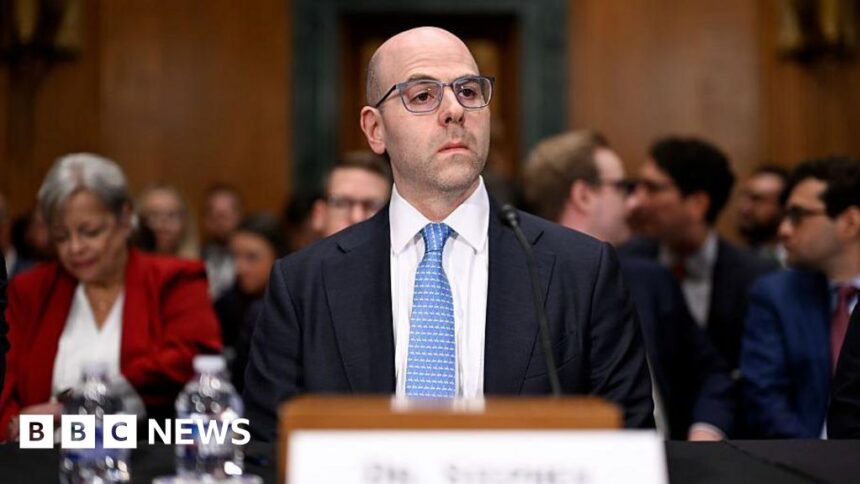The U.S. Senate has narrowly confirmed Stephen Miran as a member of the Federal Reserve’s board of governors, a significant appointment that marks the first time a sitting White House official has joined the Fed’s board since it was restructured in the 1930s. With a vote of 48-47, Miran, who currently serves as chair of the Council of Economic Advisers, is set to participate in critical monetary policy discussions and decisions, including an anticipated quarter-percentage point interest rate cut aimed at bolstering a sagging labor market.
Miran’s ascension to the board has ignited apprehensions regarding the Federal Reserve’s traditional independence, especially considering the context of President Donald Trump’s efforts to influence the central bank. Concerns have been raised by lawmakers, notably Senator Elizabeth Warren, who suggested that Miran might be viewed as a “puppet,” undermining the Fed’s perceived impartiality in economic matters.
The rapidity of Miran’s confirmation, occurring within just a few weeks, is another point of contention. This acceleration is notable given that the typical confirmation timeframe for a Federal Reserve governor usually spans several months. This urgency aligns with the Trump administration’s broader strategy to reshape the Fed to fit its economic objectives, particularly in light of ongoing pressure from the president for aggressive interest rate cuts.
Miran has publicly supported many of Trump’s trade policies, particularly the administration’s global tariffs, arguing that these import duties will not drive inflation and that implementing stricter immigration controls could soften housing demand and lower prices. His views resonate with the president’s overarching push to stimulate economic growth through decreased borrowing costs.
The backdrop of Miran’s confirmation is further complicated by President Trump’s ongoing conflict with current Fed Chair Jerome Powell. Trump has criticized Powell harshly, labeling him a “numbskull” and expressing frustration over perceived delays in implementing interest rate cuts. Miran’s role could bolster the administration’s goals at a pivotal moment, as the Fed convenes to address the current economic climate.
Additionally, tensions within the Fed have escalated due to Trump’s attempt to remove Fed Governor Lisa Cook. Citing alleged misconduct related to mortgage fraud, the president has claimed constitutional authority to dismiss Cook, who has become a focal point for criticism and resistance. Cook, the first African American woman on the board, has denied the allegations and is actively seeking legal recourse to prevent her removal, arguing that her decisions to maintain interest rates are in line with sound economic policy.
In a parallel political landscape, the Trump administration is also pursuing mortgage fraud investigations against several of its opponents, including Senator Adam Schiff and New York Attorney General Letitia James, intensifying the climate of discord as Miran prepares to make his mark on the Federal Reserve.





